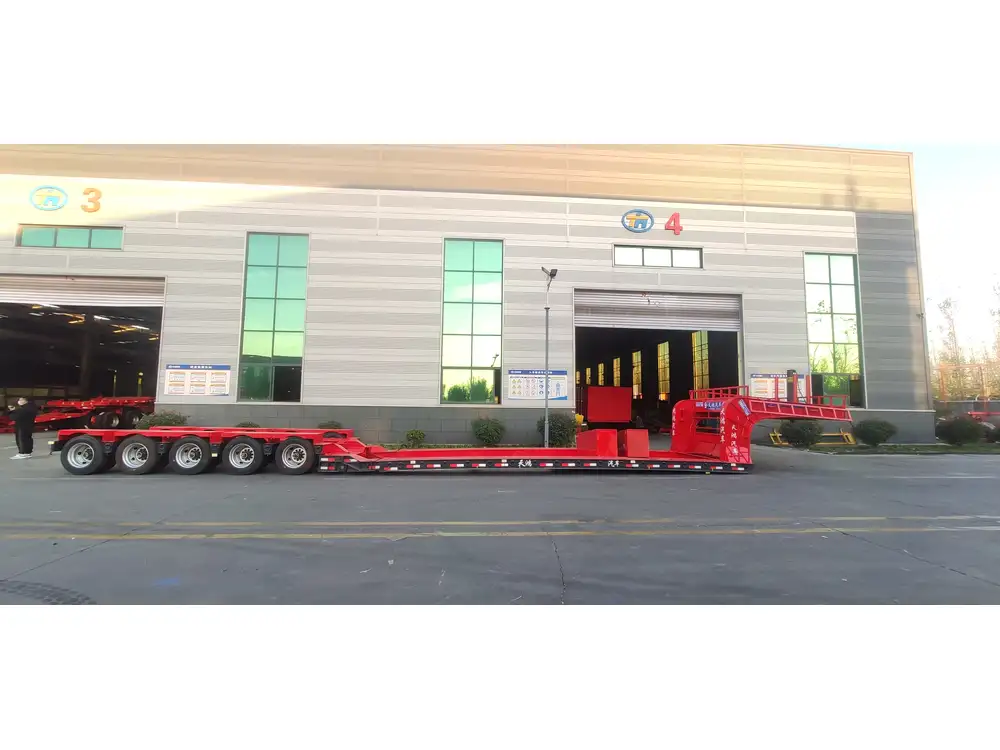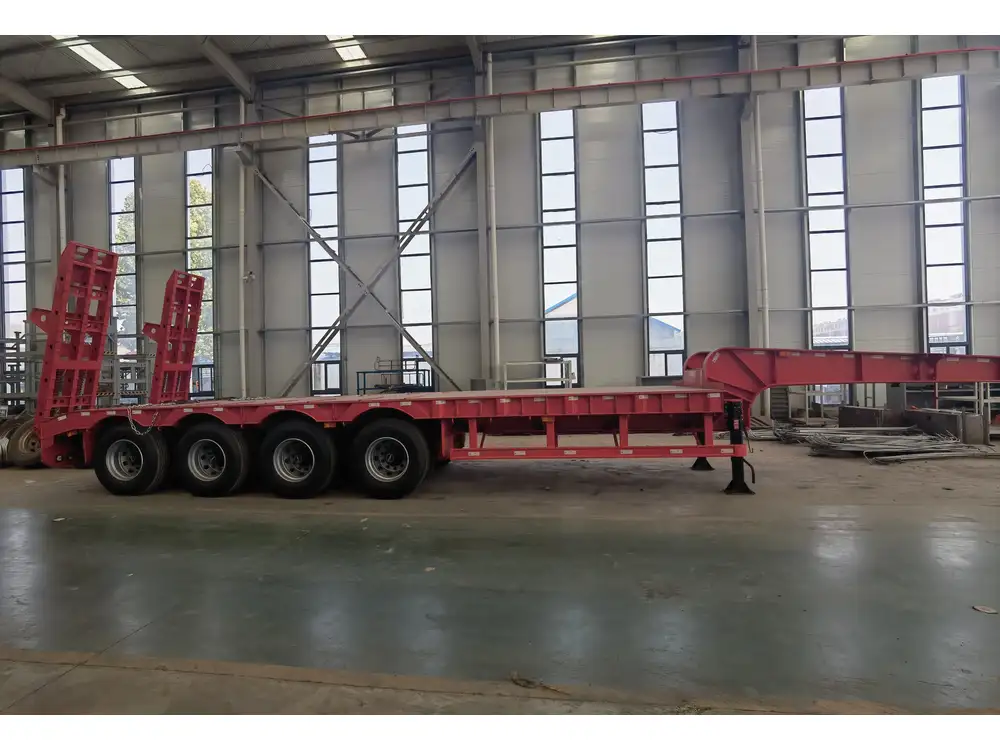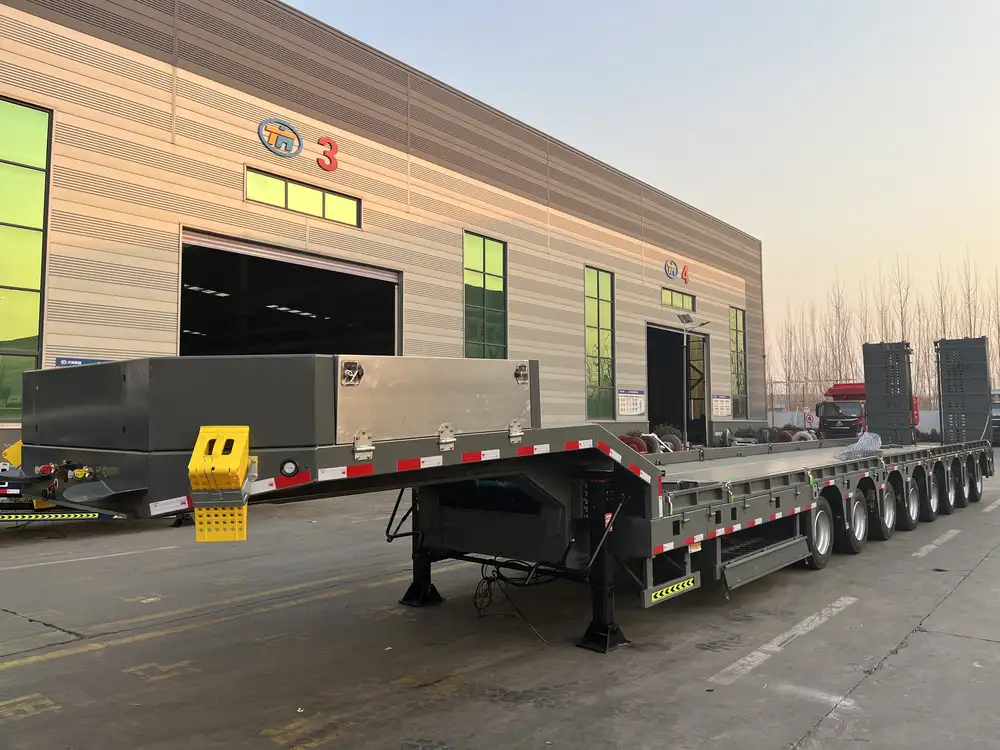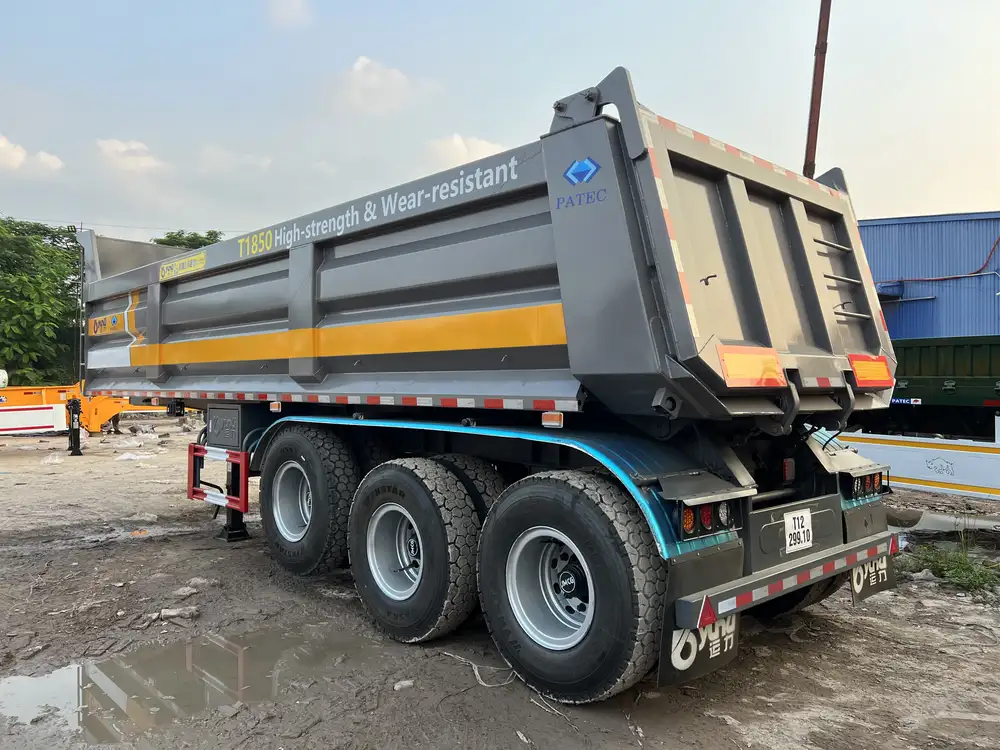When it comes to transportation and logistics, one pertinent question arises: Can you haul a vehicle in a box trailer semi? This query is not merely about feasibility; it delves into logistics management, equipment suitability, load safety, and even legal considerations. This article will guide you through the complexities involved in hauling vehicles using box trailer semis and present you with valuable insights into best practices, advantages, and potential concerns to enable informed decision-making.
Understanding Box Trailer Semis
What is a Box Trailer Semi?
A box trailer semi, also known as a dry van trailer, is a type of enclosed trailer characterized by its solid structure. Generally mounted on a semi-truck chassis, these trailers are designed for transporting goods that require protection from external elements. The enclosed nature not only shields cargo from weather damage but also offers an additional level of security against theft.

Key Features of Box Trailer Semis
| Feature | Description |
|---|---|
| Enclosure | Fully enclosed structure to protect cargo. |
| Load Capacity | Typically ranges from 10,000 to 45,000 pounds. |
| Dimensions | Standard lengths are between 28 to 53 feet. |
| Versatility | Used for varied cargo, including furniture, electronics, and more. |
| Durability | Made from heavy-duty materials for long-lasting performance. |
Load Capacity Considerations
Before attempting to haul a vehicle, it’s crucial to understand the box trailer’s load capacity. The classification of box trailers often dictates their weight limits, which can vary significantly. Overloading can lead to accidents, equipment damage, and legal repercussions. Confirm the specifications of your trailer to ensure that it can handle the weight of the vehicle you intend to transport.
Can You Haul a Vehicle in a Box Trailer Semi?

Yes, Under the Right Conditions
The answer is affirmitive, though it comes with caveats. Transporting a vehicle in a box trailer semi is possible, but several factors must be considered:
- Weight Limit Compliance: Ensure that your load, including the vehicle, does not exceed the trailer’s rated capacity.
- Dimensions: Vehicles must fit comfortably within the internal dimensions of the trailer, allowing for space to secure them.
- Secure Transport: Proper strapping and securing techniques should be employed to prevent movement during transit.
- Legal Compliance: Check local regulations regarding vehicle transport to avoid fines or other legal issues.
Types of Vehicles Commonly Hauled
Box trailer semis are generally employed for transporting lighter vehicles, such as:
- Motorcycles: Their compact size and lighter weight make them ideal for box trailers.
- ATVs and Side-by-Sides: Off-road vehicles can also fit comfortably within the dimensions.
- Sedans and Small Cars: Smaller vehicles can be secured effectively within an enclosed space.
- Classic or Vintage Cars: High-value vehicles requiring protection from the elements fit this trailer type perfectly.
Safety Precautions for Vehicle Transport
To ensure a successful transport operation, adhere to these safety guidelines:
- Weight Distribution: Balance the load by distributing weight evenly across the trailer.
- Use Quality Tie-Downs: Invest in high-quality ratchet straps or chains to secure the vehicle firmly.
- Check Tire Pressures: Ensure the vehicle’s tires are adequately inflated to reduce the risk of blowouts during transit.
- Use Wheel Chocks: Employing chocks can prevent the vehicle from rolling, especially during loading and unloading.

Benefits of Using Box Trailer Semis for Vehicle Transport
Enhanced Protection
When transporting a vehicle, the ultimate goal is to minimize risk. Box trailer semis offer exceptional protection against weather elements—rain, snow, and extreme temperatures—ensuring that vehicles arrive in pristine condition.
Security Against Theft
The enclosed nature of box trailers provides a significant security advantage. Locks on rear doors and the inability to view the contents deter theft and vandalism, making this option highly advantageous for valuable vehicles.

Versatility in Cargo Handling
Box trailers are not limited to vehicle transport. They can accommodate a variety of goods, allowing for multifaceted logistics decisions. If a vehicle needs to be transported alongside tools or spare parts, box trailers can accommodate such needs seamlessly.
Disadvantages and Challenges
While the advantages of using box trailers are clear, potential challenges should also be acknowledged.
Limited Space
The enclosed dimensions of box trailers can sometimes pose a challenge when transporting larger vehicles or multiple items. Assessing dimensions beforehand is crucial to ensure proper loading.

Increased Weight
The structural integrity of box trailers adds weight, reducing the load capacity compared to open trailers. This could limit the overall cargo that can be transported alongside a vehicle.
Ramp Requirements
Loading and unloading vehicles requires ramps, which need to be compatible with the trailer height and durable enough to support the vehicle’s weight. Inadequate ramps could lead to accidents or damage.
Best Practices for Hauling Vehicles in Box Trailer Semis

Preparation Steps
Before setting off on your journey, thorough preparation makes all the difference:
- Proper Loading Procedures: Ensure that the loading area is flat and free of obstructions.
- Assess Vehicle Condition: Check the vehicle for leaks, as fluids can create hazards during transport.
- Documentation: Prepare necessary documentation, including transportation permits if required.
Regular Maintenance of Box Trailers
Ensuring the functionality of your box trailer is imperative for safe transport:
- Brake Checks: Regularly inspect braking systems to ensure they are responsive.
- Tire Inspection: Ensure that tires are in good condition, with adequate tread and proper inflation.
- Wiring and Lights: Verify that all lights and electrical systems are functioning correctly to comply with road safety regulations.
Monitoring While in Transit
During transport, remain vigilant:
- Scheduled Breaks: Plan for breaks to inspect the load and assess the condition of the trailer.
- Watch for Unusual Sounds: Be aware of sounds from the vehicle and trailer that might indicate issues.
- Legal Compliance Checks: Familiarize yourself with regulations, such as height restrictions on major highways.

Conclusion: Is Hauling a Vehicle in a Box Trailer Semi Right for You?
Ultimately, transporting a vehicle in a box trailer semi offers both advantages and challenges. With a solid grasp of logistics, safety practices, and your specific requirements, you will be equipped to answer the critical question—”Can you haul a vehicle in a box trailer semi?”—with clarity and confidence.
Choosing the right equipment, adhering to best practices, and remaining aware of regulations can significantly streamline your vehicle transport processes, ensuring that you achieve effective and safe logistics solutions. As you embark on your transportation endeavors, weigh these considerations to make informed decisions that enhance productivity and safeguard valuable assets.



